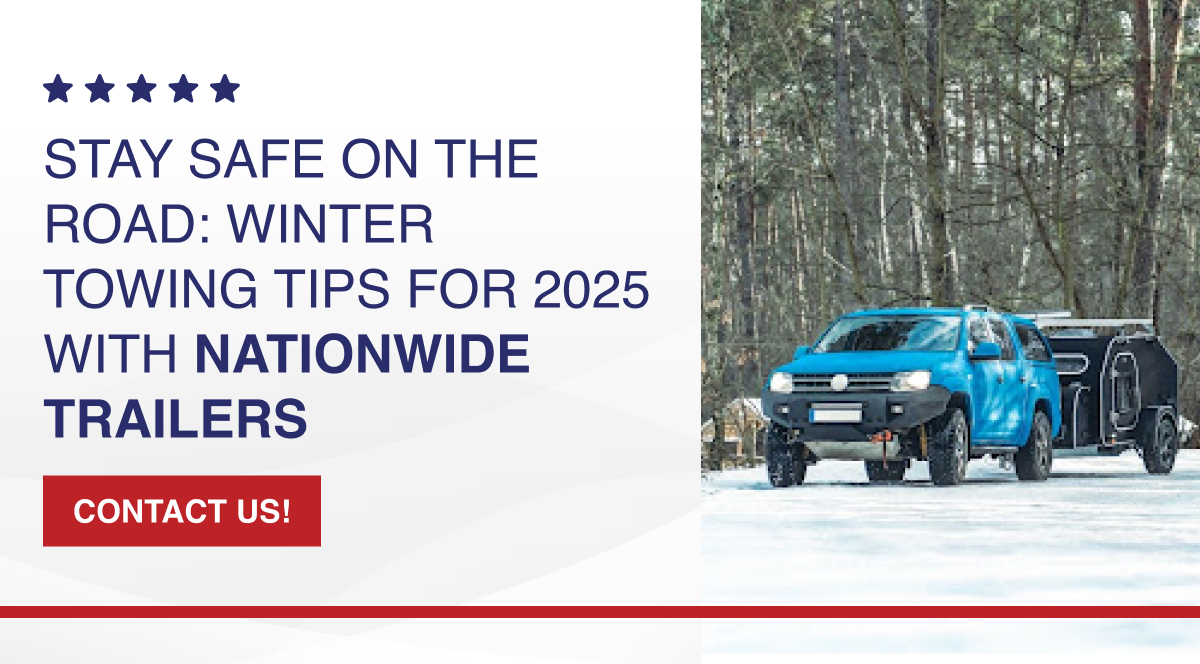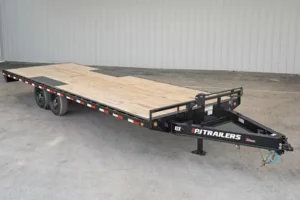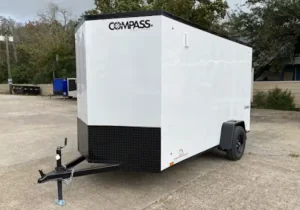
When it comes to winter towing, preparation is not just important—it’s essential. The challenges posed by icy roads, freezing temperatures, and reduced visibility mean that safe towing in winter requires a heightened focus on efficiency and safety. For haulers and fleet operators, knowing the ins and outs of winter towing practices can make all the difference between smooth operations and delays (or worse, accidents).
This blog is your go-to guide for navigating the complexities of towing in cold weather. From essential equipment maintenance to best practices for fleet operations, we’ll cover everything you need to know to stay safe, efficient, and ahead of schedule in the winter of 2025.
Why Winter Towing is Unique (and Why Preparation Matters)
Towing during winter is vastly different from typical hauling during warmer months. The cold weather introduces risks such as slippery roads, frozen connections, and poor visibility. Additionally, mechanical components on trailers and trucks are more susceptible to performance issues due to freezing temperatures. Beyond safety concerns, these challenges can lead to costly downtime for haulers or fleet operators.
Preparation is key. By taking a proactive approach—equipping your fleet with the right tools, performing routine maintenance, and sharpening safety practices—you can minimize risks and boost efficiency during the winter season.
Essential Winter Towing Equipment and Maintenance Tips
Strong towing performance in winter hinges on using the right equipment and keeping it in excellent condition. Here’s a rundown of what you’ll need and how to maintain it for optimal performance:
1. Winter Tires
Switch to winter tires for both towing vehicles and trailers. These tires are designed for better grip on snow and ice, significantly reducing the risk of accidents on slippery roads. Don’t forget to check the tire pressure regularly, as cold weather causes air to contract, making underinflation a common issue.
2. Snow Chains
Carrying snow chains is a must if you’re operating in regions with heavy snow or icy conditions. These provide extra traction, preventing skidding or jackknifing when conditions are extreme.
3. Trailer Lighting
Winter storms and shorter daylight hours can dramatically reduce visibility. Ensure that all lights on your trailer—signal, brake, and hazard lights—are functioning properly and are bright enough to remain visible in heavy snowfall or fog.
4. De-Icing Supplies
Ice buildup can affect couplers, trailer connections, and locks on cargo doors. Keep a stock of high-quality de-icer spray to quickly remove ice and keep components functioning smoothly.
5. Regular Inspections
Before every haul, inspect the following:
- Brake Systems: Ensure they’re responsive and free of ice or moisture.
- Electrical Connections: Prevent freezing by using dielectric grease on plug connections.
- Hitches & Couplers: Look for cracks or rust, which can weaken their ability to withstand extreme cold.
Staying ahead on trailer safety and upkeep not only preserves equipment but also prevents costly delays. Professional maintenance and inspections keep your fleet safe on winter roads.
Operating a Fleet in Winter: Best Practices and Safety Measures
Fleet operators face unique challenges when managing a team of drivers during winter. Implement these best practices to keep your fleet running efficiently and safely:
1. Streamlined Communication
Establish clear communication channels between dispatchers and drivers to share updates about road closures, weather conditions, and safe routes. Equip drivers with GPS units that provide real-time traffic and weather updates.
2. Train Drivers on Winter-Specific Skills
If icy roads make you nervous, they do the same for your drivers. Provide training sessions tailored to winter conditions. Topics should include how to safely maneuver in snow, when to use snow chains, and recognizing black ice hazards.
3. Emergency Preparedness Kits
Equip each vehicle with an emergency kit containing items like warm blankets, a flashlight, first-aid supplies, jumper cables, high-energy snacks, and extra fuel. This ensures your drivers are prepared, even when facing unexpected breakdowns or road closures.
4. Load Distribution Matters
Overloading your trailer in winter can make the vehicle harder to control on icy roads. Remind your team to follow proper load balancing practices to maintain stability and prevent accidents.
5. Monitor Weather Proactively
Leverage weather tracking tools to plan routes and schedules around storms. Avoid sending drivers into whiteout conditions unless absolutely necessary.
Ready for Safer Winter Towing?
Are you prepared to tow confidently this winter? Whether you’re part of a fleet or a solo hauler, taking action now can prevent costly setbacks during the season. Update your trailer for safer winter towing by browsing our selection of high-quality trailers, designed to withstand the harshest conditions. Visit Nationwide Trailers today to explore options and get expert advice tailored to your needs!



